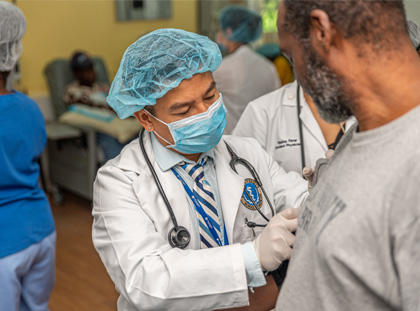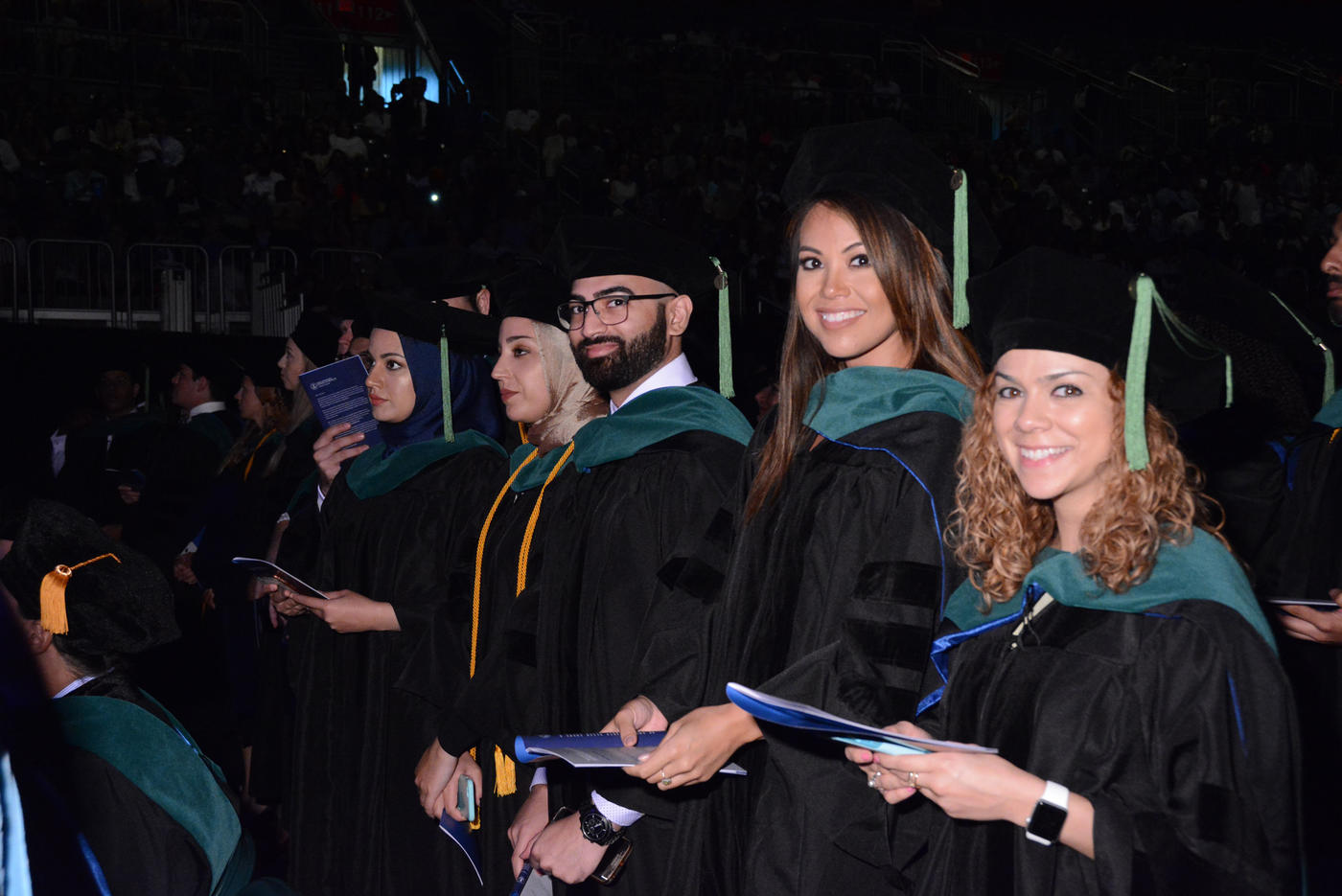When you apply to medical schools, it’s important to do your research and make sure that those medical schools are accredited—meaning the schools meet the functional and structural standards for medical education in their particular region. You may be wondering: Are Caribbean medical schools accredited by the Liaison Committee on Medical Education® (LCME®)? The answer is no. In the United States and Canada, the LCME accredits schools that grant Doctor of Medicine (MD) degrees. In the Caribbean, some medical schools, such as Ross University School of Medicine (Ross Med), are accredited by accreditors who are deemed comparable to the LCME.
How Are Caribbean Schools Accredited?
At its most basic, accreditation answers three key questions:
- Has the medical school clearly established its mission and institutional learning objectives?
- Are the medical school’s curriculum and resources organized to meet its mission and objectives?
- Is the medical school currently achieving its mission and objectives, and is it likely to continue to achieve them in the future?
Accreditation Procedures for Caribbean Medical Schools
Ross Med, located on the island of Barbados, is accredited by the Caribbean Accreditation Authority for Education in Medicine and Other Health Professions (CAAM-HP)1. CAAM-HP is recognized by the U.S. National Committee on Foreign Medical Education and Accreditation (NCFMEA) as being comparable to LCME standards. CAAM-HP is also recognized by the World Federation for Medical Education (WFME), the international authority on medical school standards. CAAM-HP accredits more than a dozen medical schools among the member states of the Caribbean Community and in the Dominican Republic. It has accredited Ross Med since 2009.
Ross Med students enjoy some of the same privileges as students enrolled in medical schools in the United States and Canada. Ross Med students may qualify for federal student loans through the U.S. Department of Education. They may register with the Educational Commission for Foreign Medical Graduates (ECFMG) to begin the United States Medical Licensing Examination® (USMLE®) process. Ross Med students may also move on to medical residencies accredited by the Accreditation Council for Graduate Medical Education (ACGME), the residency authority in the United States.
CAAM-HP is not the only medical school accreditation authority in the Caribbean islands. The Accreditation Commission on Colleges of Medicine (ACCM), which is also recognized by the NCFMEA and the WFME, accredits eight other Caribbean medical schools. (To see if a particular Caribbean medical school’s accreditation authority meets U.S. and international standards, check the NCFMEA and WFME approval lists.)
The Caribbean Med School Accreditation Process
CAAM-HP accreditation is a rigorous, peer-review process that examines all aspects of a medical program. The CAAM-HP board, an independent and autonomous body of professionals, only certifies medical schools that are operating at the highest levels of industry standards.
Through this accreditation, CAAM-HP provides assurance to medical students, graduates, the medical profession, health care institutions, and the public that programs leading to qualifications in medicine meet appropriate national and international standards for educational quality, and that graduates have a sufficiently complete and valid educational experience.
The first step in the CAAM-HP Caribbean medical school accreditation process is a request for assessment by the government of a medical school’s home country. For Ross Med, this took place in the late 2000s. After a medical school submits required documents—such details as courses, clerkships (clinical training), enrollment, facilities, faculty, resources, and an institutional self-study—CAAM-HP officials arrive to perform the assessment and determine the school’s accreditation merits. The CAAM-HP accreditation procedure has been deemed comparable to the system used by the LCME.
When seeking to answer the question, “How are Caribbean medical schools accredited?,” it is important to note the various characteristics that are necessary for a school to have. For example, CAAM-HP must ensure that its accredited medical schools meet its standards in such aspects as curricular content, faculty, learning environment, organization, and structure, as well as student selection, services, and support.
Accredited schools must also help students through the financial aid process, provide debt management counseling, and offer reasonable tuition refund policies. After a period of time, CAAM-HP repeats the accreditation procedure through a survey to ensure the school continues to meet all standards.
What Are the Best Caribbean Medical Schools?
You may be curious to know which accredited Caribbean med school is best. As is the case for medical schools in the United States and Canada, not all accredited Caribbean medical schools are created equal. The “best” school may largely be a matter of opinion, but some schools have better reputations based on the key points of success: the percentage of students who pass the initial step of the United States Medical Licensing Examination® (USMLE®) and the percentage of students who are accepted into medical residencies.
Ross Med provides an exceptional medical education that is evident in the success of its students. From 2019 through 2023, 86.8% of Ross Med students passed the USMLE® Step 1 on the first attempt. 2 And in 2022-2023, 98% of Ross Med graduates earned residencies throughout the United States and Canada.3
Why Choose an Accredited Caribbean Medical School?
Many students choose Caribbean medical schools because they offer another pathway to pursue their dreams and study medicine.
Ross Med believes in a holistic admissions process. Holistic admission considers an applicant as an entire person rather than a set of grades and scores. This approach looks at grades and test scores, of course, but it also considers a student’s adaptability, critical judgment, intellectual and social maturity, life experiences, and volunteer work, as well as graduate school performance when applicable.
Students who missed the cut on U.S. medical schools in 2022–2023—when matriculants had a mean undergraduate GPA of 3.75 (out of 4.0) and an average Medical College Admission Test® (MCAT®) score of 511.9 —may have a chance at Ross Med, where direct admits for the 2022-2023 academic year had an average GPA of 3.27 and an average MCAT score of 494.
Ross University School of Medicine combines medical science, clinical training, and soft skills support in a state-of-the-art educational environment that keeps learning relevant, contemporary, and competitive. Take the next step toward a medical career: Learn about the MD program at Ross Med and apply for admission today!
1Ross University School of Medicine is an accredited medical school, determined by the Caribbean Accreditation Authority for Education in Medicine and Other Health Professions (CAAM-HP, www.caam-hp.org). CAAM-HP is the legally constituted body established in 2003 under the aegis of the Caribbean Community (CARICOM), empowered to determine and prescribe standards and to accredit programs of medical, dental, veterinary, and other health professions education on behalf of the contracting parties in CARICOM.
2First-time pass rate is the number of students passing the USMLE Step 1 exam on the first attempt divided by the number of students whose first attempt was in 2019-2023. In order to sit for the USMLE Step 1 exam students must successfully complete the Medical Sciences curriculum and earn a satisfactory score on the NBME CBSE exam as listed in the student handbook.
3First-time residency attainment rate is the percentage of students attaining a 2023–2024 residency position out of all graduates or expected graduates in 2022–2023 who were active applicants in the 2023 NRMP match or who attained a residency position outside the NRMP match.
Related resources:




